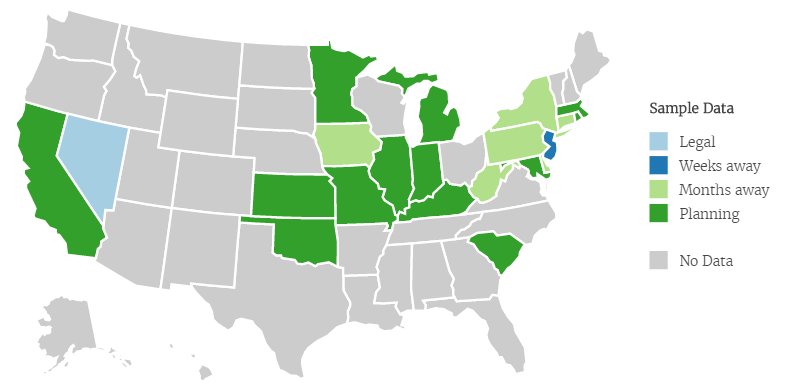Legal Gambling
Yes, online gambling is legal in the US. Some states have gone as far to regulated and provide licenses for legal online gambling sites to operate and accept residents from their states. Not all sites are legal though, so make sure to understand the laws in your particular state. State gambling laws prohibit games, wagers, or bets that have outcomes that rely at least partially upon some element of chance.
Gambling Laws in Texas: When and Where Texans Can Gamble
- June 14, 2017
- The Law Office of Greg Tsioros
- Comments Off on Gambling Laws in Texas: When and Where Texans Can Gamble
- Yes, online gambling is legal in California. In fact, California laws don’t prohibit, regulate, or ban any type of online gambling. You can feel free to play on any online casino and enjoy your favorite casino or card games that you can’t find in the state. The only law regarding online gambling in California is the age limit.
- Gaming law is the set of rules and regulations that apply to the gaming or gambling industry.
- With legal sports wagering going live on mobile apps in Virginia just in time for the Super Bowl, there's a push to gain new clients in the Commonwealth by the major players involved in the industry.
U.S. Gambling Overview
Americans have embraced gambling by for centuries. Before our country fought the Revolutionary War, settlers enjoyed European card games and participated in simple lotteries. As the country grew, gambling halls and saloons were gathering places. In the 20th century, local, state, and the federal government got involved. Some states sought to restrict gambling activities while others legalized gambling. Today, many states have brick and mortar casinos, sports betting outlets, lotteries, and race tracks.
Nevada (Las Vegas) was the first to legalize many types of gambling in 1931. New Jersey (Atlantic City) followed decades later in 1977. With the passage of the Indian Gaming Regulatory Act in 1988, reservations throughout the U.S. were permitted to offer gambling and gaming to generate revenues. To complicate things a bit, the Federal Wire Act of 1961 limited sports wagering between the states.
Online gambling has caused the states to review their positions on online casino games, including video poker, baccarat, roulette, keno, blackjack, faro, slots, craps, etc. If you’re accused of a gaming or gambling crime, or another party has offered illegal gambling in Texas, contact an experienced criminal attorney now.
When and Where is Gambling Legal in Texas and Throughout the U.S.
Gambling is legal for those who are 21 years of age or older at Eagle Pass in Texas (Kickapoo Lucky Eagle Casino). People in Texas can also legally participate in the Texas Lottery or make pari-mutuel wagers on greyhound and horse racing. Raffles, charitable bingo, and pull-tab bets are also considered legal in Texas.
In comparison, some states allow 18-year-olds to gamble. Today, Alaska, Arkansas**, California (some locations), Connecticut***, Delaware (horse racing only), Florida**/***, Idaho, Indiana**, Louisiana**, Maine**, Maryland**, Minnesota**, New Mexico, New York (by casino), Ohio**, Oklahoma (by casino), Oregon***, Pennsylvania**, South Dakota ***, Washington** (some casinos), Wisconsin***, and Wyoming allow some gambling to 18-year-olds.
**Pari-mutuel wagers only (short duration events, such as horse racing, jai alai, or greyhound racing, or any event with ranked order participation)
***Bingo only
All other states require gamblers to be at least 21 years of age. It’s impossible to get around the age requirement at brick and mortar casinos. If you attempt to gamble before you’re 21 years old, you may be arrested, incur fines, or have your money confiscated by law enforcement.
The point of confusion for many would-be gamblers concerns online gambling. For instance, there may be a difference in the age required by the site and the age required by Texas to gamble. If the site says you can gamble at age 18 but Texas state law requires you to be at least 21 years old, you must comply with Texas state law. Don’t risk jail time and fines for gambling or gaming arrests.
Texas Gambling Laws

Texas gambling laws are some of the strictest in the nation. For instance, Texas Hold ‘Em card game bets are illegal in Texas. Gamblers must be 21 years old. They may be on greyhound or horse racing, social gambling (like office pools), charitable raffles, and bingo. The law says that gambling on other games of chances is against the law in Texas.
Under Code Section PEN 47.01 et seq. and Civ. St. 179e, gambling, or agreeing to win or lose money or something of value based on chance, or keeping a casino (other than one casino on Indian lands) is prohibited. Promoting any form of gambling (other than pari-mutuel wagers), maintaining a place of gambling, communicating information about gambling, or owning gambling devices are illegal in Texas. For that reason:
• Card games, sports bets, and scratch tickets (other than those legally offered by the Texas Lottery) are illegal.
• Casinos, other than Kickapoo Lucky Eagle Casino, are illegal in Texas. As a casino on native lands, the Lucky Eagle location is permitted.
• Social gambling, like bingo games, private card games, or charity auctions are allowed unless the organizer takes a portion of the proceeds. The law in Texas says that gambling may occur in a private place as long as the chance of losing and winning are evenly distributed.
• Slot machines with cash payouts are illegal in Texas. If the prizes are inexpensive and not cash items, such as a coffee pot, the law says it’s okay to play.
Slot Machines with Cash Payouts Are Illegal in Texas

According to a New York Times article, illegal slot machines are cropping up around Texas, especially in some Rio Grande Valley border towns. The problem has captured the attention of enforcement professionals of the U.S. Department of Homeland Security. It’s estimated that illegal slots machines generate approximately $1.9 billion per year (up to 150,000 illegal units).

Recognize that gambling at slot machines with cash payouts can mean arrest and legal consequences in Texas. If you or someone you know has been arrested for illegal gambling or gaming in Texas, you need an experienced criminal defense attorney at your side. If you or a loved one has been exploited because of gambling addiction in Houston, Harris County, or throughout Texas, you need a professional attorney to assist in the recovery of your money now. Don’t go it alone. Call Greg Tsioros to discuss your matter now at 832-752-5972 now. We’re standing by 24/7 to take your call.
- Casino Gambling: Legal
- Poker: Legal(restrictions apply)
- Horse Racing Betting: Legal
- Dog Racing Betting: Legal
- Lottery: Legal
- Daily Fantasy Sports: Not Specified
- Charitable Gaming: Legal
- Social Gambling: Legal(restrictions apply)
- Online Gambling: Not Specified
Texas gambling law is among the strictest in America. This has to do with tradition, mostly. Texas was settled largely by people with no strong cultural tradition of gambling. In the German-settled areas of Texas (including the present-day capital of Austin), the only form of gambling known was microstakes poker. Unlike parts of New England, there’s no amount of legal gaming in Texas’ history.
Legal Gambling In Florida
When Texas converted from a Union democrat to a conservative Republican state in the 1970s and 1980s, the state’s tendency to shy away from gaming grew into a matter of policy. That being said, some policy changes involving gambling law in the Lone Star State have been successful. Texas is home to one of the most profitable and popular state lotteries. Other big changes in Texas allowed for the opening of not one but two casino-like businesses.
We dug through Texas’ criminal and penal codes and put together some facts about the state’s complex gambling law. We’ve also included some resources for people who want to do some research on Texas gaming law on their own.
Legal Gambling In The Philippines
Texas has come a long way in terms of the freedom to gamble. Just a few decades ago, Texas didn’t have a lottery, had no charitable gaming laws, no allowance for social gambling, and no casinos. Besides pari-mutuel wagering (and a massive underground illegal sports betting and poker network), Texans had no way to gamble. Fast-forward to today, and Texas is now home to two Class II casinos, a powerful and well-attended lottery, a carve-out for charitable bingo and raffles, and a loophole that sort of (kind of) makes home poker games legal.
Legal Gambling
Before we dig too much deeper into Texas’ gaming laws, let’s look at some key stats and information about the state’s gaming industry.
- Age Requirements: 21
- Approximate Annual Gambling Revenue: n/a
- Approximate Annual Gambling Taxes: n/a
- Number of Commercial Casinos: 0
- Number of Racinos: 0
- Number of Tribal Casinos: 2 (class II only)
- Casino Regulatory Body: Texas Lottery
- Lottery National Rankings: 4th
Over the past thirty years or so, chaos has reigned in the Texas legislature. This once proud Union democrat state has been totally overtaken by the Tea Party and the religious right. Gaming laws have changed so much in the past few decades, the state’s gaming laws are all but unrecognizable. They’re also difficult to dig through. Below, you’ll find our analysis of the current state of gambling law in Texas. Remember that we aren’t lawyers and we don’t intend this as legal advice. If you need legitimate legal advice about Texas gambling, consult a Texas lawyer with experience in the gaming business.